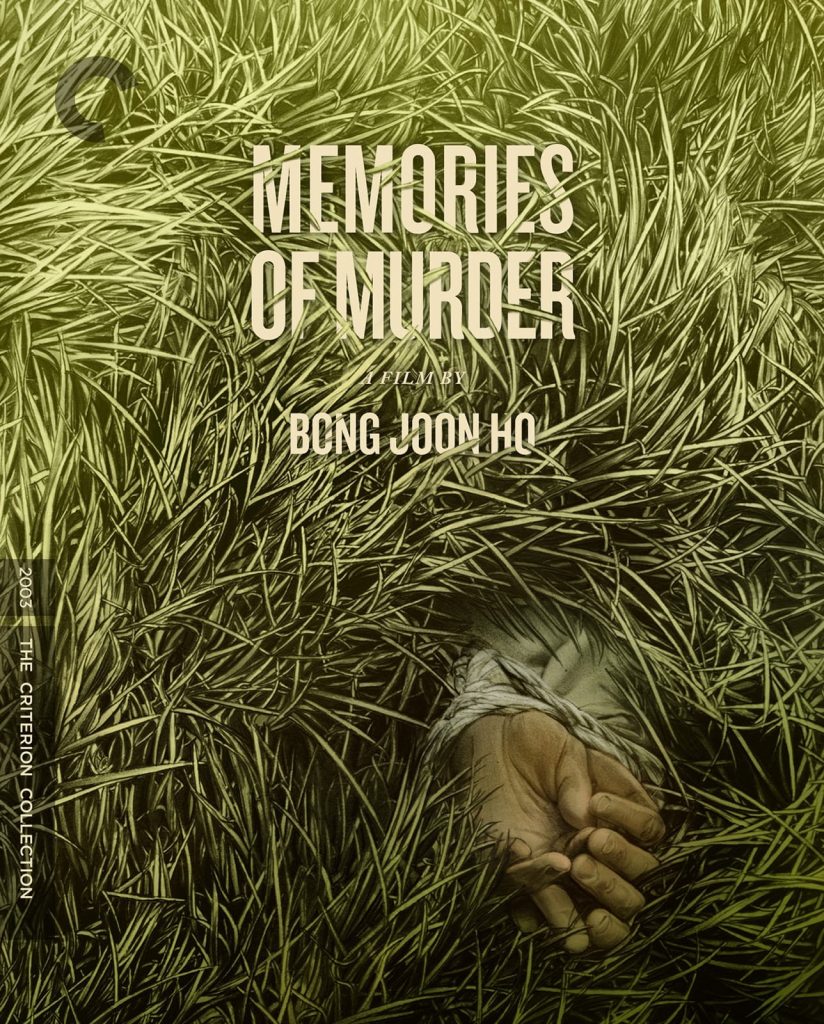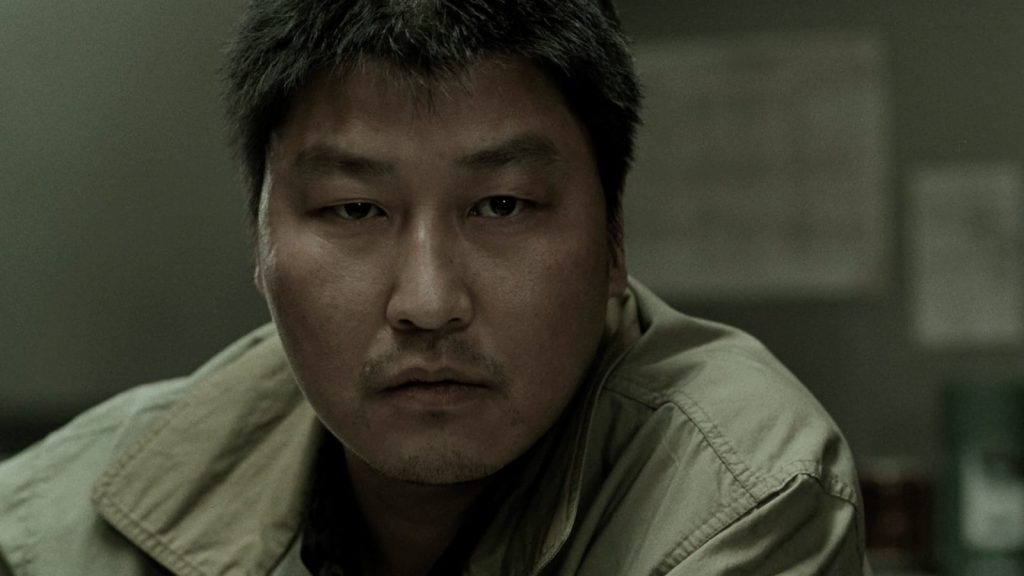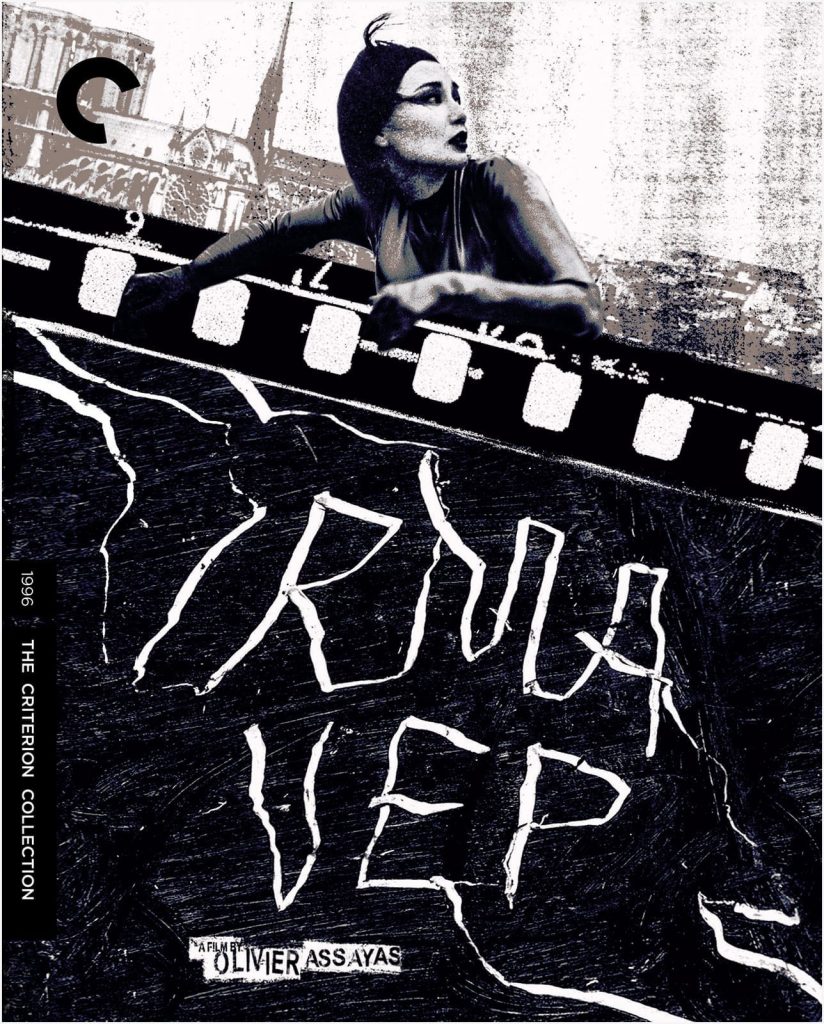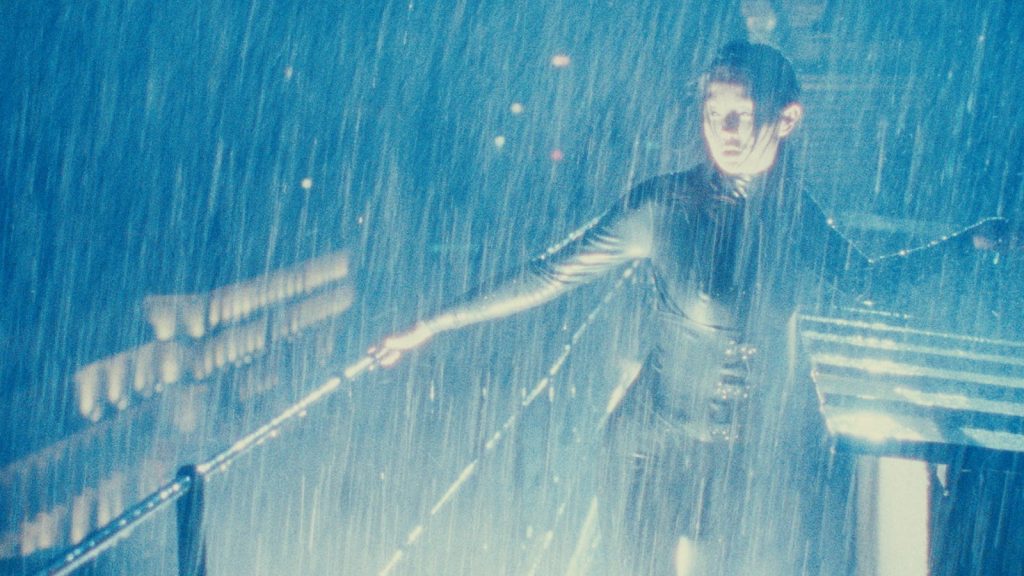Welcome to the Criterion Corner, where we break down some of the month’s new releases from the Criterion Collection.
#1073: Memories of Murder (2003), dir. Bong Joon-ho

Long before he set the world on fire with Parasite, South Korean director Bong Joon-ho was carving out a powerful presence as one of the country’s great cinematic masters. While he made his early furtive steps towards worldwide notoriety with the stellar 2005 monster picture The Host, his second feature, 2003’s Memories of Murder, showcases his intriguing command of tone and deep fascination with moral gray areas. And thanks to a 4K restoration that’s been distributed by NEON and now comes to the Criterion Collection, Western audiences have another opportunity to revisit this burgeoning classic.
While discussions about police misconduct and their utility as an institution have been raging the last couple of years, Bong recognized their systemic flaws as early as Memories of Murder. Loosely based on South Korea’s first big serial-killer case in the late ’80s, Bong’s film flits between three detectives as they try to track down a murderer of young girls in a sleepy farm town called Hwaesong. There’s Park Doo-man (Bong stalwart Song Kang-ho), the head detective who’s convinced he can suss out the truth by looking in a man’s eyes; Cho Yong-koo (Kim Roi-ha), a blustering Dirty Harry-type much more likely to beat suspects than to negotiate with them; and Seo Tae Yoon (Kim Sang-kyung), a young but smart big-city detective from Seoul who has more hands-off methods to investigate the murders.
Much like David Fincher’s Zodiac (though distinct in innumerable ways), Memories of Murder uses the police procedural as a way to snapshot a culture at a certain time and place. Here, it’s South Korea in the ’80s, a country on the verge of becoming a major industrialized nation, whose rural frontiers had yet to catch up with the ‘civilizing’ forces of Seoul. Student protests are quashed by the very police forces we’re following, and Bong makes no bones about their moral ambiguity. On the one hand, they’re our ‘good guys’ — men driven to seek justice in the names of the women this man has killed. On the other, they’re equal parts bumbling (as evidenced by the comedic tenor of many of the chase scenes) and downright authoritarian. Efforts to find the right guy are stymied by political concerns, red tape, and the desperation of these detectives to find someone, anyone, on which to pin the blame.

Answers come as fleetingly as grace in Memories of Murder, but Bong’s second feature is filled with indelible images that will haunt you — from the rain-soaked chases in the streets of Hwaesong to the simple shot of Park staring into a covered ditch, the camera tantalizingly waiting to show us what horrors lie inside. Much ballyhoo has been made of the director-approved (and cinematographer-supervised) 4K digital restoration of the film, and the green hues that drape the film in a Matrix-like sheen. It’s not a complete dealbreaker, especially given the sharpness of the rest of the restoration; in fact, it helps sell the dingy claustrophobia of the detectives’ investigation. But for those used to the brighter, more dynamic color palette of its original release, this may prove a challenging adjustment.
Still, the set more than makes up for it with a bevy of other extras, including two (!) commentaries, one from Bong and the cast and crew, and another from Criterion’s resident Asian film scholar Tony Rayns. There’s also a gushing interview from Guillermo del Toro about how Memories resonates with his own filmmaking style, as well as one from Bong about the real-life serial killer who inspired the story. BTS docs and deleted scenes are also included, as well as a 1994 student film from Bong called Incoherence which shows glimmers of his future brilliance.
You can purchase Memories of Murder via The Criterion Collection here.
#1074: Irma Vep (1996), dir. Olivier Assayas

Olivier Assayas has long been one of film’s most energizing, yet insular and challenging directors. He’s a postmodernist deeply obsessed with breaking down the cultures around academia, high/low art, and the filmmaking industry itself; see Non-Fiction, Clouds of Sils Maria, and Certified Copy if you don’t believe me. It can sometimes feel like his formal experimentation doesn’t allow for neophytes to easily enter his worlds, but that’s paradoxically part of the charm. Irma Vep, his 1996 satire of the French film industry, is Assayas in a nutshell: wrapped up in inside baseball, but intriguing enough that you want to follow the conversation anyway.
His sixth feature, Irma Vep is a film about filmmaking, as well as the clashes inherent to cultural exchange. An ambitious director (Jean-Pierre Leaud) wants to remake a classic French crime serial called Les vampires, and wants to cast Chinese action star Maggie Cheung as the sexy, vampiric cat burglar Irma Vep. Cheung (playing a lightly-fictionalized version of herself) comes to Paris to slap on Irma’s latex catsuit and immediately finds herself alienated from her environment: the set around her is chaos, egos clash as budgets go over, and the language barrier (Cheung speaks fluent English, but only passable French) keeps her at arm’s length from the rest of the production. That, of course, opens her up for reinvention, as the Matrix-like catsuit (the director’s ode to Michelle Pfeiffer’s Catwoman in Batman Returns) inspires her to find a taste of the transgressive power of the woman she’s playing.
All of this is set amid the backdrop of Assayas’ frenzied, confident filmmaking,
Éric Gautier’s grainy handheld cinematography capturing the fluidity and naturalism of dialogue scenes before giving way to more presentational flourishes like the cacophonous, scratched-celluloid climax that closes out the movie. Discussions abound about the nature of adaptation, the necessity of remakes, the folly of France’s obsession with chasing the populist thrills of Hollywood cinema rather than making “real art.” Between these concerns and the Sonic Youth pumping on the soundtrack, it’s hard to imagine another film that has its finger so firmly on the pulse of ’90s arthouse film culture than Irma Vep.

That, of course, makes it a perfect addition to the Criterion Collection, and the 2K digital restoration is mighty fine, keeping the fly-by-night graininess of the picture while making it feel like the most pristine version of itself. On top of that, we get a host of interviews and featurettes, including several check-ins with Assayas (one of which is an hour-long Zoom lecture on the state of cinema), another with Cheung and co-star Nathalie Richard, an episode of the original Les vampires and a doc about the original Irma Vep actor from that serial. There’s also Man Yuk, a five-minute short from Assayas centered on Cheung, and some black-and-white rushes of Cheung walking across a rooftop that might prove fleetingly interesting for completionists.
All in all, Criterion’s Irma Vep set is a solid introduction to one of Assayas’ most acclaimed yet under-discussed works, and a good primer on his thematic sensibilities if it’s your first go-round with him. What’s more, the focus on aesthetic and thematic context in the features (e.g. the Les vampires extras) and clean-but-not-pristine presentation fit the meta-textual brief for the film quite nicely.
You can purchase Irma Vep via The Criterion Collection here.